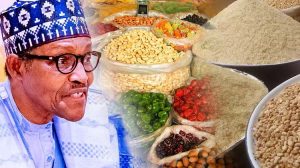Experts have warned that if prevailing socio-economic challenges and other triggers are not addressed within the shortest period, Nigeria’s inflation rate may spiral above 50 per cent as it currently stands at 20.52 percent, representing the highest rate since September 2005 and still rising.
While inflation concerns are not peculiar to Nigeria, the circumstances driving the surge are peculiar, especially, in the form of poor earnings from natural resources, as a result of theft, sabotage, insecurity and banditry, which have affected local production; foreign exchange concerns, huge expenditure and debt burden, among other challenges.
The new inflation rate raises concerns for Nigeria, placing pressure on the apex bank to increase interest rates, in desperate attempts to rein in rising prices.
Already, Moody’s new report says African banks will respond to the rising inflation and associated higher savings rates with an upward re-pricing of loans.
The response, the report foresees, would weaken borrowers’ capacity to repay existing loans and increase banks’ provisioning for loan loss. It, however, notes that most of the banks “took proactive provisions following the outbreak of the pandemic,” which will limit the extra provisioning required as defaults rise.
“The impact on Nigerian and Kenyan banks’ margins will be muted because their interest rates are already high and some of their deposit rates are index-linked to the policy rate. African banks’ sizeable holdings of government debt securities will fall in value as interest rates rise, but these unrealised losses are unlikely to crystallise,” the Moody’s Corporation’s arm states.
In Nigeria, specifically, the report notes that large volumes of the loans are short-term; hence, they will be re-priced higher. This, it adds, could be constrained by already higher lending rates and stiff competition.
Yesterday, data from the National Bureau of Statistics (NBS) showed that Nigeria’s inflation figure rose from 19.64 per cent recorded in July to 20.52 per cent.
The Consumer Price Index (CPI) report by the NBS showed that Nigeria’s CPI rose by 1.77 per cent on a month-on-month basis, compared to the 1.82 per cent increase recorded in the previous month.
The report added that food inflation rose to 23.12 per cent in August 2022 on a year-on-year basis, representing a 2.82 per cent increase when compared to 20.30 per cent in August 2021.
“This rise was caused by increase in prices of bread and cereals, food products like potatoes, yam and other tubers, fish, meat, oil and fat,” the report said.






